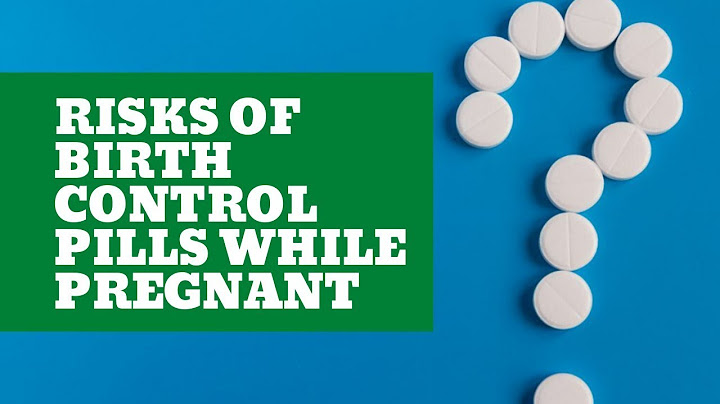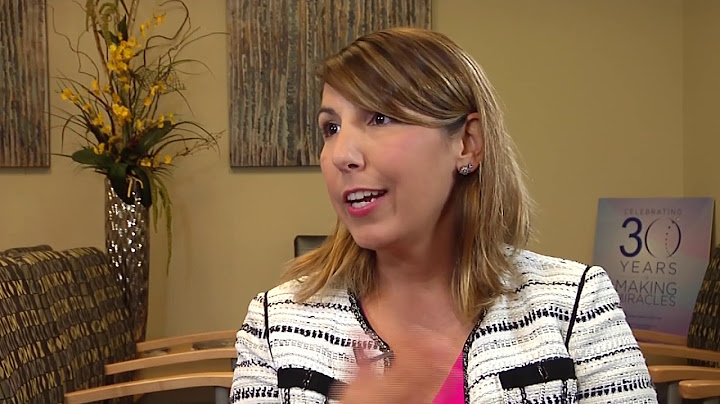Not everyone is in love with their prenatal vitamin. I have many friends who lament the fish-flavored aftertaste of their DHA vitamins, constipation from the iron-fortified variety, and general queasiness that can happen if you take them on an empty stomach. It's easy to understand why they would want to cool it with the horse pills as soon as their baby is born, but is that wise? Many doctors tell their patients to continue taking them even during the postpartum period, but how long should you take prenatal vitamins after you give birth? Show
Strangely enough, there is no universally adopted recommendation for the cessation of prenatal vitamins in the postpartum period. Not from the American College of Obstetrics and Gynecology (ACOG), not from the Royal College of Obstetrics and Gynaecology (RCOG) and not from the World Health Organization (WHO). While all agree that postnatal supplementation of vitamin D or iron may be required, there is no consensus on folate supplementation, which is the primary vitamin found in prenatal vitamins. However, WHO does suggest continuing with prenatal vitamins for as long as you breastfeed, and the ACOG, while they don't mandate the practice as WHO does, noted that some OB-GYNs recommend it. The Cleveland Clinic suggested not only the vitamin D and DHA — the brain boosting nutrient found in fatty fish and seaweed — but also that prenatal vitamins continue to be taken by breastfeeding women. Sure, you might not want to get pregnant again soon, or ever, but it's still good for you if you're nursing. Personally, I haven't had a child in years, and I still take them, but this is also partly due to the fact that I do not and cannot take any birth control, so on the off chance that my barren body makes life, I want to be safe. I need a vitamin anyway because of a previous surgery that affects my ability to synthesize many nutrients, and it's easy to remember because Amazon subscribe and save never forgets. There may be more to it than just recommendations, though. According to a study published in Nutrients, there are real, demonstrable benefits to maintaining your vitamin ritual for as long as you're breastfeeding. This isn't just folate, though. It's DHA, folate, vitamin D, and iodine. The study found that the continued supplementation through the breastfeeding period led to better visual acuity, brain development, and skills processing in the infant. Researchers theorized that this is because infants get all of their nutrition from their mothers during this period, and thus, the nutrition intake of their mother is reflected in the growth of the child. How long should you take prenatal vitamins after you give birth if you're not planning on breastfeeding or getting pregnant right away? While you may require certain nutrients after giving birth, like iron and iodine, according to The Mayo Clinic, if you're not trying to get pregnant again, you can go ahead and cut out the prenatal vitamins. This is one of those cases where it can be too much of a good thing, according to The Mayo Clinic. Prenatal vitamins serve a specific purpose in your body when you need to take them. If you're not mandated to take a specific vitamin, it's best you don't take it and instead find your nutrients via a food source and healthy, balanced diet, even if eating a healthy, balanced diet with a new baby seems absolutely impossible. Honestly, there are probably days where you're lucky if you remember to eat at all, am I right? It's all about doing your best for you and your baby. Talk to your OB-GYN, see what they say, but generally, prenatal vitamins are only for pre-pregnancy through lactation.  You may want to continue to take prenatal vitamins after you deliver your baby if you're breast-feeding. That's because your diet directly impacts how much nutrition your newborn gets, which in turn can affect her growth and development. Talk to your health-care provider about continuing your prenatal supplements after you give birth if you're planning to nurse your baby. If you're not breast-feeding, ask your doctor if there are other supplements you should be taking. Continue Learning about VitaminsImportant: This content reflects information from various individuals and organizations and may offer alternative or opposing points of view. It should not be used for medical advice, diagnosis or treatment. As always, you should consult with your healthcare provider about your specific health needs. Contents
You may have heard that pregnant women need to take prenatal vitamins every day, but what about after giving birth? Interestingly enough, there are two answers to that question. And the answer depends on whether you will be breastfeeding or not. However, there is a little more to it all than just that, and we will answer all your questions right here! How Long Should I Take Prenatal Vitamins After Giving Birth?Women who don’t breastfeed should continue to take their prenatal vitamins for at least six months postpartum to ensure that their nutrient stores are replenished. And for women who do breastfeed, you should take a prenatal vitamin for as long as you breastfeed your child. Postnatal vs. Prenatal Vitamins: What’s the Difference?If you were to compare labels, you would see that many postnatal and prenatal vitamins have the same core vitamins and minerals. The main difference is that prenatal supplements contain more folic acid to support the developing fetus. Some postnatal vitamins may also contain Vitamin B12, which helps newborns’ nerve network and brain development. Some postnatal vitamins may also contain Vitamin B12, which helps the nerve network and brain development in newborns. Should I Take Prenatal Vitamins During Pregnancy?It is vital to supplement with the essential vitamins and minerals you and your baby need while you are expecting. In addition, you must take prenatal vitamins while pregnant because they contain folic acid (Vitamin B9). This B vitamin helps prevent neural tube defects in your baby. Women of childbearing age should get 400 mcg/day of folic acid from dietary supplements, fortified foods or a varied diet. However, the National Institute of Health says that pregnant women should increase their recommended daily allowance (RDA) of 400 micrograms (mcg) of folate to 600 mcg. And since this level of intake is likely a challenge for many pregnant women to achieve through diet itself, it is recommended they take a prenatal vitamin to ensure they get enough folic acid and other nutrients. Should I Stop Taking Prenatal Vitamins Once I’ve Had My Baby?Now that you have given birth, it is still important to take your prenatal vitamins as they contain nutrients like iron and calcium, which are essential for both you and your baby. What Do I Need to Know About Prenatal Vitamins and Breastfeeding?Since breastfeeding can deplete a woman’s nutrient stores, it is important to continue taking prenatal vitamins after you have given birth and for at least six months while you are still exclusively (or mostly) nursing your baby. An over-the-counter supplement like One A Day Mother’s Blends Prenatal Multivitamin Gummies can help keep your nutrient levels up while breastfeeding. Is it a Good Idea to Take Prenatal and Postnatal Supplements at the Same Time?You may have heard that some women opt to take both prenatal and postnatal vitamins, but this is actually not recommended by most medical professionals because it doesn’t provide an increased level of nutrients. Also, too many of certain vitamins can be harmful, so it is best to consult with your doctor before starting any new supplement regimen. What Postnatal Vitamins Should I be Taking after Giving Birth?Postnatal vitamins are different from prenatal ones. They contain nutrients like iron and calcium that your body needs to recover after childbirth while breastfeeding, but they don’t have folic acid or DHA, which you need when you’re pregnant. Here are some of the essential vitamins that are in postnatal vitamins that you need:
Let Healing Hands Chiropractic Help You During Pregnancy and AfterWe hope this article has answered all your questions about prenatal and postnatal vitamins! We can also help with any unpleasant physical symptoms you may have during or after pregnancy. And as always, if you have any additional concerns, please don’t hesitate to reach out to Healing Hands Chiropractic at 615-203-3505 today. Frequently Asked QuestionsWhat follows are questions we commonly are asked at Healing Hands Chiropractic. What happens if I don’t get the nutrients needed during pregnancy and post-pregnancy?Pregnancy takes a toll on your body, so it is important to get many nutrients from the food you eat. Eating well ensures that you are getting all the vitamins and minerals needed for both yourself and your baby! If you don’t have enough nutrients in your body, this can lead to complications during pregnancy or after giving birth because there aren’t enough resources for you and your baby. When should I stop taking postnatal vitamins?Whether it’s pregnancy-related vitamins or women’s multivitamins, Dr. Dee at Healing Hands Chiropractic recommends eating right and taking postnatal vitamins all your life. How long should I stay on prenatal vitamin supplements?Prenatal vitamins should be taken throughout the entire duration of a pregnancy. I’m breastfeeding. Should I continue taking my prenatal supplements?For women who breastfeed, the recommendation is to take a prenatal vitamin for as long as you breastfeed your child. Women who don’t breastfeed should continue to take their prenatal vitamins for at least six months postpartum to ensure that their nutrient stores are replenished. What will happen if I don’t take prenatal or postnatal vitamins after giving birth?If you don’t take postnatal vitamins after pregnancy, you may experience some side effects such as fatigue and anemia. In addition, not taking prenatal vitamins can also lead to deficiencies in key nutrients which are crucial for both you and your baby’s health. Prenatal vitamins help to fill any gaps in your diet, so it is important to continue taking them even after you have given birth. How important is my diet if I’m taking supplements?The different brands of prenatal and postnatal vitamins offer various elements in their blends, but it can be challenging to find one that checks all the boxes on your nutrition checklist. Therefore, it’s essential to eat a balanced diet while taking your daily vitamins. Where do I get the best prenatal and postnatal vitamins?You can buy prenatal and postnatal vitamin supplements at grocery stores, pharmacies and online. If you are a nursing mom looking for postnatal vitamins, look for vitamin D, calcium, folic acid and iron on the label. Some postnatal vitamins also contain herbal supplements such as fenugreek and moringa and fenugreek, which some studies show support milk production. |

Related Posts
Advertising
LATEST NEWS
Advertising
Populer
Advertising
About

Copyright © 2024 nguoilontuoi Inc.


















